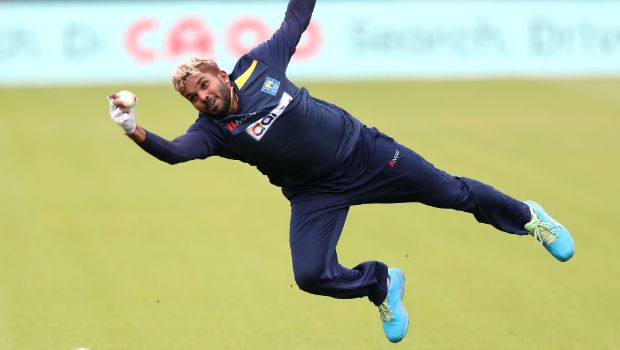
Sri Lankan all-rounder Wanindu Hasaranga has been suspended for the two-match Test series against Bangladesh. The first test begins on Friday, March 22 at Sylhet International Cricket Stadium with the following Test in Chattogram from March 30. This came about only a few days after the 26-year-old cricketer made the announcement to play Test cricket again, having previously retired from the game last year. Hasaranga was found guilty of violating Article 2.8 of the ICC Code of Conduct for Players and Player Support Personnel, which deals with “showing dissent at an Umpire’s decision during an International Match,” during the third and final ODI of the recently concluded series against Bangladesh.
The incident happened in the game’s 37th over when the right-arm leg-break bowler grabbed his cap off an umpire and made fun of the umpiring. Bangladesh batted well to win the match by four wickets and won the series 2-1. Hasaranga was handed a 50 percent fine and three demerit points. As a result, he has accumulated eight demerit points in only 24 months.
After picking up three demerit points in the third T20I against Afghanistan in Dambulla earlier this month, the all-rounder had already accumulated five. He was then suspended for two T20 Internationals against Bangladesh. With the most recent demerit points accrued, Hasaranga has now passed the eight demerit point threshold, which has been converted to four suspension points as per Article 7.6 of the Code.
Due to the four suspension points, the right-handed batter will be unable to play in either of the two ICC World Test Championship Tests against Bangladesh or four ODIs or T20Is, whichever comes first. Had Hasaranga not come out of retirement in Tests, he could have missed four games in the T20 World Cup, which will be contested later this year in the USA and West Indies.
Sri Lanka’s ODI captain, Kusal Mendis, was also fined 50 percent and handed three demerit points for a Level 2 offense after he “abused the umpires while shaking hands with them” after the ODI series decider against Bangladesh. Article 2.13 of the Code, which prohibits “personal abuse of a player, player support personnel, umpire, or match referee during an international match,” was breached in this case. This was Mendis’ first offense in 24 months.
Both Hasaranga and Mendis admitted their offenses and accepted the sanctions proposed by Andy Pycroft of the Emirates ICC Elite Panel of Match Referees.
